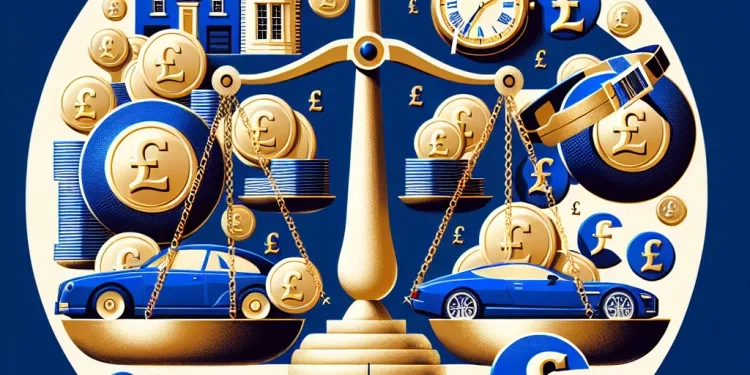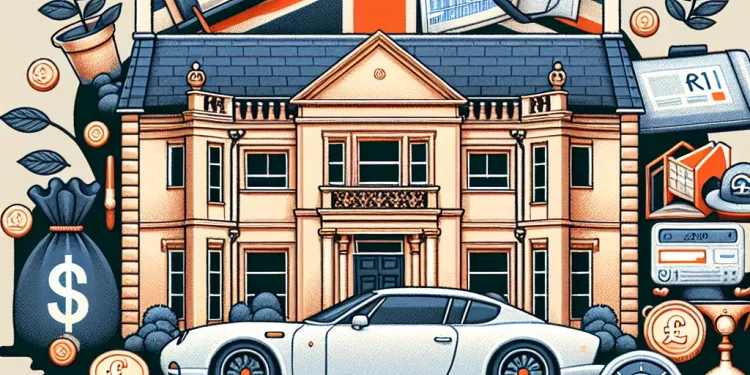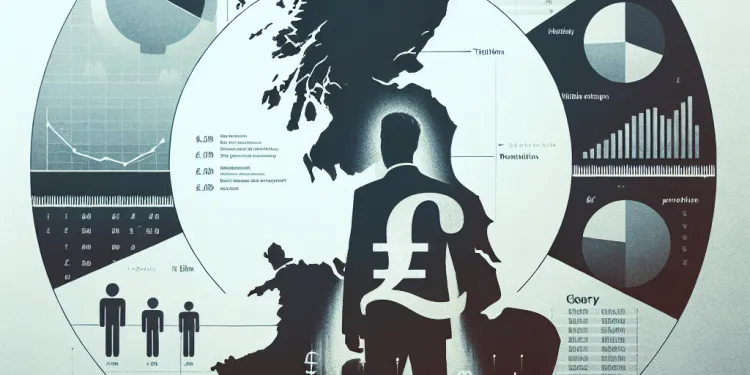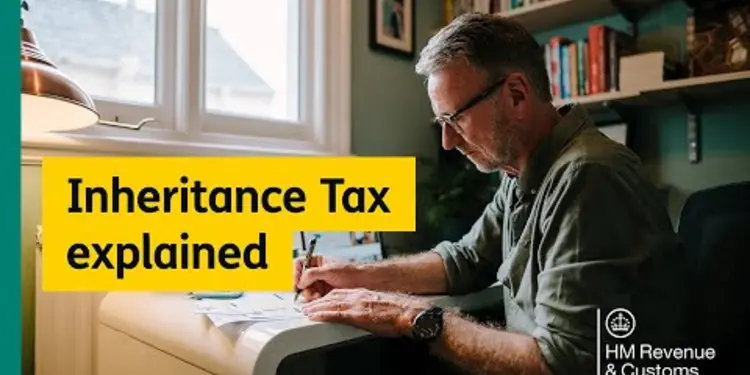
Find Help
More Items From Ergsy search
-

Could a wealth tax encourage tax avoidance?
Relevance: 100%
-

What is the Wealth Tax in the UK?
Relevance: 83%
-

What is a Wealth Tax?
Relevance: 83%
-

Would a wealth tax replace other taxes in the UK?
Relevance: 82%
-

What is the wealth tax in the UK?
Relevance: 82%
-

What are the challenges of implementing a wealth tax?
Relevance: 79%
-

What arguments are made for a wealth tax in the UK?
Relevance: 79%
-

What is the objective of a wealth tax?
Relevance: 79%
-

What are common arguments in favor of a wealth tax?
Relevance: 77%
-

Can a wealth tax impact economic behavior?
Relevance: 77%
-

Has the UK ever had a wealth tax?
Relevance: 77%
-

How does a wealth tax differ from an income tax?
Relevance: 77%
-

Who is typically subject to a wealth tax?
Relevance: 76%
-

How is a wealth tax typically calculated?
Relevance: 76%
-

Could a wealth tax affect economic growth in the UK?
Relevance: 76%
-

Can a wealth tax be levied annually?
Relevance: 76%
-

How might a wealth tax impact inequality in the UK?
Relevance: 76%
-

Why doesn't the UK have a wealth tax?
Relevance: 76%
-

How do economists view the impact of wealth taxes?
Relevance: 75%
-

How do other countries implement a wealth tax?
Relevance: 75%
-

What are the administrative costs of a wealth tax?
Relevance: 74%
-

Are there any countries currently implementing a wealth tax?
Relevance: 74%
-

Would a wealth tax apply to foreign assets?
Relevance: 73%
-

How might a wealth tax affect wealthy individuals?
Relevance: 72%
-

Is real estate included in wealth tax calculations?
Relevance: 72%
-

How do governments ensure compliance with wealth tax laws?
Relevance: 71%
-

Has any political party in the UK supported a wealth tax?
Relevance: 71%
-

How does council tax relate to wealth in the UK?
Relevance: 68%
-

What taxes in the UK target wealth?
Relevance: 57%
-

Do wealth taxes differ between countries?
Relevance: 55%
-

What are common criticisms of a wealth tax?
Relevance: 55%
-

Are there alternatives to a wealth tax for addressing inequality?
Relevance: 53%
-

What exemptions are commonly associated with wealth taxes?
Relevance: 53%
-

Do public opinion polls support a wealth tax in the UK?
Relevance: 50%
-

Is there a difference between inheritance tax and estate tax?
Relevance: 50%
-

What is input tax and output tax?
Relevance: 49%
-

Has the idea of a wealth tax been discussed in political debates?
Relevance: 49%
-

What types of assets are typically subject to a wealth tax?
Relevance: 49%
-

What is Inheritance Tax?
Relevance: 49%
-

What is inheritance tax?
Relevance: 49%
Introduction to Wealth Tax
A wealth tax is a levy on the net wealth of an individual, which typically includes assets such as real estate, stocks, and business holdings, minus any liabilities. Its objective is to generate revenue and address wealth inequality. In the UK, this concept has been discussed as a measure to address rising inequality and to fund essential services. However, implementing a wealth tax may lead to unintended consequences, such as increased tax avoidance. Understanding the relationship between a wealth tax and tax avoidance is crucial for policymakers and the public.
The Appeal of a Wealth Tax
Proponents of a wealth tax argue that it ensures those who have benefited the most from the economic system contribute a fair share to society. It is considered a tool to redistribute wealth and fund public services, especially in times of fiscal deficits or economic crises. Advocates suggest that without such measures, wealth disparity will continue to widen, affecting social cohesion and economic stability. However, opponents caution that enforcement and compliance issues could undermine these objectives, potentially leading to an increase in tax avoidance.
Risks of Tax Avoidance
Tax avoidance involves using legal methods to minimize tax liability, often by exploiting loopholes in the tax law. If the UK introduces a wealth tax, those seeking to protect their wealth may employ similar strategies. Wealthy individuals typically have access to skilled financial advisors who can devise complex schemes to shield assets. This can involve transferring wealth to low-tax jurisdictions or restructuring ownership to exploit legal gaps.
Factors Encouraging Tax Avoidance
Several factors could exacerbate tax avoidance if a wealth tax were implemented. First, the complexity of accurately valuing certain assets, like artworks or private businesses, gives room for manipulation and dispute. Second, differences in tax policy among countries might incentivize relocating assets or even individuals to jurisdictions with lower tax burdens. Finally, the administrative burden and cost of compliance may lead some to explore avoidance strategies rather than confront potential penalties or misvaluation risks.
Strategies to Mitigate Tax Avoidance
To effectively implement a wealth tax, the government must anticipate and circumvent potential avoidance strategies. This includes international cooperation to address cross-border challenges and harmonize tax rules. Domestically, investing in robust valuation methods and closing existing loopholes would be essential. Clear definitions and enforcement mechanisms must accompany any policy roll-out to ensure compliance.
Conclusion
While a wealth tax in the UK could bridge inequality gaps and bolster public finances, the risks of tax avoidance present significant challenges. By understanding and addressing these risks, policymakers can design a fair and effective tax system. A thoughtfully crafted wealth tax, supported by international cooperation and stringent enforcement mechanisms, is essential if it is to achieve its intended goals without leading to significant tax avoidance.
What is a Wealth Tax?
A wealth tax is money people pay to the government based on what they own. This includes things like houses, stocks, and businesses. It is like paying for the total value of everything you have, but you can subtract any debts you owe. The goal is to collect money for public needs and make sure rich and poor are not too far apart. In the UK, people talk about using it to help pay for important services. But, it might make people try to avoid paying their taxes. Knowing how wealth tax works with tax avoidance is important for leaders and everyone else.
Why Some People Like the Wealth Tax
Some people think a wealth tax is fair because it makes sure rich people help the community by paying taxes. This can help share wealth more evenly and pay for public services, especially when the government needs more money. Supporters say if we do not have this tax, rich and poor will keep getting further apart, which can be bad for everyone. But others say it might be hard to make sure everyone pays what they should. This could lead to more people trying not to pay taxes.
Problems with Avoiding Taxes
Tax avoidance is finding legal ways to pay less tax. If the UK starts a wealth tax, rich people might try to find ways around it. They can hire experts to help them find ways to avoid paying. This might mean moving their money to places with lower taxes or changing who owns what so they do not have to pay as much tax.
Why People Might Avoid Taxes
If the UK starts a wealth tax, some things might make people avoid paying it. First, it can be hard to figure out how much some things are worth, like art or private businesses, and people might argue about this. Also, if other countries have lower taxes, people might move their money or themselves to these places. Finally, figuring out and paying a wealth tax can be expensive and hard, making people look for ways to get out of it.
How to Stop Tax Avoidance
To have a good wealth tax, the government needs to stop people from avoiding it. This means working with other countries to make tax rules the same everywhere. In the UK, spending money to know how much things are worth and closing ways to avoid paying is important. Clear rules and good ways to check people are paying must be in place to make sure everyone follows the law.
Ending Thoughts
In the UK, a wealth tax could help share money more fairly and support public services. But, it could also lead to people avoiding taxes. By knowing these problems, leaders can create a fair tax system. A well-planned wealth tax, with help from other countries and strong rules, can reach its goals without too much trouble from people avoiding taxes.
Frequently Asked Questions
What is a wealth tax?
A wealth tax is a tax levied on the net value of assets owned by individuals. It includes assets like real estate, stocks, bonds, cash, and other personal property.
How might a wealth tax encourage tax avoidance?
A wealth tax might encourage tax avoidance by incentivizing individuals to hide or undervalue their assets to reduce their taxable net worth.
What are common methods of tax avoidance related to wealth tax?
Common methods include transferring assets to family members, using trusts, undervaluing assets, moving wealth to tax havens, and taking advantage of loopholes in tax law.
Are there any countries that have implemented a wealth tax?
Yes, countries like Norway, Spain, and Switzerland have implemented wealth taxes, though the specifics and rates vary.
What are the arguments in favor of implementing a wealth tax?
Proponents argue that a wealth tax can reduce economic inequality, generate significant tax revenue, and target those most able to pay.
What arguments are there against wealth taxes?
Critics argue that wealth taxes can lead to capital flight, discourage investment, and are difficult to administer due to asset valuation challenges.
Can wealth taxes lead to negative economic consequences?
Some argue that wealth taxes may deter high-net-worth individuals from investing or residing in countries with such taxes, potentially leading to reduced economic growth.
What is asset undervaluation in the context of wealth tax avoidance?
Asset undervaluation refers to reporting the value of assets lower than their actual market value to reduce the tax burden.
How can tax authorities counteract tax avoidance related to a wealth tax?
Tax authorities can counteract tax avoidance by enforcing strict reporting requirements, conducting audits, and closing legal loopholes.
What role do tax havens play in wealth tax avoidance?
Tax havens offer low or no taxes on wealth and can serve as a place to hide or legally store assets away from home country tax obligations.
How significant is the threat of wealth tax leading to capital flight?
The threat depends on factors like the tax rate and the ease with which individuals can relocate. High rates may increase the risk of capital flight.
Can closing tax loopholes reduce tax avoidance with a wealth tax?
Yes, closing loopholes can make it harder for individuals to legally avoid paying taxes and help ensure the wealthy pay their fair share.
What are the administrative challenges of implementing a wealth tax?
Challenges include accurately assessing the value of diverse assets, enforcing compliance, and preventing tax avoidance maneuvers.
Have wealth taxes been abandoned in any countries?
Yes, countries like France and Sweden have abandoned wealth taxes, often citing enforcement difficulties and negative economic impacts.
What are trusts and how are they used to avoid wealth taxes?
Trusts are legal arrangements where assets are held by one party for the benefit of another. They can be used to legally separate ownership and control of assets, potentially reducing taxable wealth.
How does asset reallocation impact wealth tax obligations?
Reallocating assets can change the taxable base, potentially reducing a person's taxable net worth by moving wealth into non-taxable or lower-taxed categories.
What is the economic impact of tax avoidance resulting from a wealth tax?
Tax avoidance can reduce government revenue, resulting in less funding for public services and potentially placing a greater tax burden on others.
Is international cooperation necessary to enforce wealth taxes effectively?
Yes, international cooperation helps track cross-border asset movement and prevents individuals from taking advantage of international tax differences.
Can digital assets contribute to wealth tax avoidance?
Digital assets, like cryptocurrencies, can be difficult to track and value, potentially complicating the enforcement of wealth taxes.
What lessons can be learned from countries with successful wealth tax implementations?
Successful implementations often feature moderate rates, comprehensive asset valuation methods, and effective international cooperation to prevent tax evasion and avoidance.
What is a wealth tax?
A wealth tax is money that rich people have to pay to the government. They pay it because they own a lot of things like money, houses, and cars. The government uses this money to help everyone, like by building schools and hospitals.
Tools to help you understand:
- Dictionaries: Use a simple dictionary to look up words you don't know.
- Voice Readers: Listen to the text using a voice reader app if it helps you understand better.
- Ask for Help: Talk to someone you trust if you have questions.
A wealth tax is money you pay to the government because of the things you own. These things can be houses, land, stocks (parts of companies), bonds (a way to lend money), cash, and other personal items.
How could a wealth tax make people try to avoid paying taxes?
A wealth tax could make some people try to avoid paying taxes. They might try to hide their money or say it's worth less. They do this to pay less tax.
How do people try not to pay wealth tax?
Here are some ways people avoid paying taxes:
- Giving their money or things to family members.
- Using special accounts called trusts.
- Saying their things are worth less money.
- Sending their money to countries with low taxes.
- Finding tricky ways in tax rules to pay less money.
For help, you can use pictures, make lists, or ask someone to explain more.
Do any countries have a tax on rich people's money?
Some countries ask rich people to pay a special tax. This tax is called a "wealth tax." It means people with a lot of money give some of it to the government.
If you want to learn more, you can ask someone to help you. You can also use a computer or tablet to look it up online. Make sure you ask a grown-up if you need help.
Yes, some countries have taxes on wealth. These countries include Norway, Spain, and Switzerland. Each country does it a little differently, and the rates are not the same.
Why do some people want a wealth tax?
Here are some reasons why:
- Fairness: Some people think it is fair for rich people to pay more to help others.
- Helping society: The money from a wealth tax can be used for schools, hospitals, and other important things.
- Reducing inequality: It can help make the gap between rich and poor smaller.
If reading is hard, try using a ruler to follow the lines or ask someone to read with you.
Some people say a wealth tax is good because it can make rich and poor people more equal. It can also help the government get more money and make sure the richest people pay their share.
Why do some people not like wealth taxes?
Some people say wealth taxes might make rich people move their money to other countries. They also think these taxes could make people stop investing their money in businesses. It can be hard to figure out how much different things are worth for these taxes.
Do wealth taxes cause bad effects on the economy?
Some people say that taxes on rich people might make them not want to live or invest in places with these taxes. This could make the economy grow slower.
What does undervaluing an asset mean when trying to avoid paying wealth tax?
Asset undervaluation is when people say their things are worth less money than they really are. They do this to pay less tax.
How can tax offices stop people from avoiding a wealth tax?
Tax offices need to make sure everyone pays their fair share of taxes. Some people try not to pay their taxes by hiding their money or moving it. Here are some ways tax offices can stop this:
- Better Watching: Look closely at where people put their money. This helps find tricks people use to avoid taxes.
- Make New Rules: Make or change laws so people can't easily hide their money from the tax office.
- Work Together: Share information with other countries. This makes it harder for people to hide money in other places.
- Teach People: Help people understand why paying taxes is important. This can make more people follow the rules.
- Use Technology: Use computers and software to find tax avoidance better and faster.
Tools to Help: If you find this hard to understand, ask someone for help. You can also use picture aids or simple charts to make the information clearer.
Tax offices can stop people from avoiding taxes by doing these things: they can make sure everyone fills out the right forms, check their money records, and change rules to make it harder to hide money.
How do tax havens help people avoid paying wealth tax?
Tax havens are places where you pay little or no money in taxes. People sometimes use them to keep their money safe or to avoid paying taxes at home.
If you find reading hard, try using tools that read the text aloud. You can also ask someone to help you understand.
Will a wealth tax make rich people move their money away?
The risk of people moving their money away depends on two things: how much tax they have to pay and how easy it is for them to move somewhere else. If taxes are very high, people might be more likely to move their money to other places.
Will fixing tax rules stop rich people from paying less tax?
Some rich people pay less tax because they use special rules called 'tax loopholes'. If we fix these rules, then maybe they will pay the right amount.
A 'wealth tax' is a type of tax for rich people. It means they pay tax on money and things they own.
If we make the rules better and fairer, then rich people might pay more tax. This can help everyone.
Using pictures or videos can help you understand better.
Yes, closing these gaps can stop people from finding ways not to pay taxes. It also helps make sure rich people pay what they should.
What is hard about making a wealth tax work?
There are some problems that need fixing. These are:
- Figuring out how much different things are worth.
- Making sure everyone follows the rules.
- Stopping people from finding ways not to pay taxes.
To help understand better, you can:
- Use simple charts or pictures.
- Ask someone to explain things with easy words.
- Try reading out loud to yourself.
Do any countries still have wealth taxes?
Yes, some countries like France and Sweden stopped having wealth taxes. They found it hard to make sure everyone pays and it was not good for the economy.
What are trusts and how do they help people pay less tax?
A trust is a way to keep and manage money or things.
People use trusts to help with taxes. This means they might pay less tax on their money or things.
Trusts can be tricky. It's good to ask for help. You can talk to a money helper or use a computer program.
A trust is a legal way to keep and manage things like money or property. One person looks after these things for someone else. Trusts can help keep money or things safe and might help pay less tax.
How does changing what you own affect your money tax?
Moving your money around can help you pay less tax. You can put your money into places where you won't have to pay as much tax or won't pay any at all.
How does avoiding taxes affect the economy when there is a wealth tax?
Some people have a lot of money, and they are asked to pay extra taxes called wealth tax. Sometimes, people find ways not to pay these extra taxes. This is called tax avoidance. Let's see how this might change the economy:
- When rich people do not pay these taxes, the government has less money to spend on things like schools and hospitals.
- This might mean less help and services for everyone.
- If more people avoid paying, the government might have to find other ways to get money, like raising other taxes.
Helpful Tools:
- Use picture charts to see how taxes work.
- Watch videos that explain money and taxes simply.
- Ask for help from a teacher or friend if it seems confusing.
When people avoid paying taxes, the government gets less money. This means there is less money to help pay for things like schools and roads. It can also mean other people have to pay more taxes.
Do countries need to work together to make wealth taxes work well?
Yes, countries working together can help keep an eye on money and things that move across borders. This stops people from using different tax rules in other countries to their advantage.
Helpful Tip: Using maps to see where countries are can make it easier to understand how they work together.
Can digital money help people avoid paying wealth tax?
Digital money, like Bitcoin, can be hard to follow and figure out how much it's worth. This can make it tricky to collect taxes on people's wealth.
Tools like picture stories or apps that read text out loud can help understanding.
What can we learn from countries with good wealth taxes?
Some countries have wealth taxes that work well. We can learn from them.
Here is what to think about:
- How do they make everyone pay their fair share?
- What do they use the tax money for?
- How do they make sure people follow the rules?
- What tools or help do they offer to make things easy?
Using pictures or charts can help you understand better. Asking a family member or friend for help can be useful too.
Good plans work well when:
- The tax rates are not too high or too low.
- All things that have value are counted properly.
- Countries work together to stop people from not paying taxes.
Useful Links
This website offers general information and is not a substitute for professional advice.
Always seek guidance from qualified professionals.
If you have any medical concerns or need urgent help, contact a healthcare professional or emergency services immediately.
Some of this content was generated with AI assistance. We’ve done our best to keep it accurate, helpful, and human-friendly.
- Ergsy carfully checks the information in the videos we provide here.
- Videos shown by Youtube after a video has completed, have NOT been reviewed by ERGSY.
- To view, click the arrow in centre of video.
- Most of the videos you find here will have subtitles and/or closed captions available.
- You may need to turn these on, and choose your preferred language.
- Go to the video you'd like to watch.
- If closed captions (CC) are available, settings will be visible on the bottom right of the video player.
- To turn on Captions, click settings .
- To turn off Captions, click settings again.
More Items From Ergsy search
-

Could a wealth tax encourage tax avoidance?
Relevance: 100%
-

What is the Wealth Tax in the UK?
Relevance: 83%
-

What is a Wealth Tax?
Relevance: 83%
-

Would a wealth tax replace other taxes in the UK?
Relevance: 82%
-

What is the wealth tax in the UK?
Relevance: 82%
-

What are the challenges of implementing a wealth tax?
Relevance: 79%
-

What arguments are made for a wealth tax in the UK?
Relevance: 79%
-

What is the objective of a wealth tax?
Relevance: 79%
-

What are common arguments in favor of a wealth tax?
Relevance: 77%
-

Can a wealth tax impact economic behavior?
Relevance: 77%
-

Has the UK ever had a wealth tax?
Relevance: 77%
-

How does a wealth tax differ from an income tax?
Relevance: 77%
-

Who is typically subject to a wealth tax?
Relevance: 76%
-

How is a wealth tax typically calculated?
Relevance: 76%
-

Could a wealth tax affect economic growth in the UK?
Relevance: 76%
-

Can a wealth tax be levied annually?
Relevance: 76%
-

How might a wealth tax impact inequality in the UK?
Relevance: 76%
-

Why doesn't the UK have a wealth tax?
Relevance: 76%
-

How do economists view the impact of wealth taxes?
Relevance: 75%
-

How do other countries implement a wealth tax?
Relevance: 75%
-

What are the administrative costs of a wealth tax?
Relevance: 74%
-

Are there any countries currently implementing a wealth tax?
Relevance: 74%
-

Would a wealth tax apply to foreign assets?
Relevance: 73%
-

How might a wealth tax affect wealthy individuals?
Relevance: 72%
-

Is real estate included in wealth tax calculations?
Relevance: 72%
-

How do governments ensure compliance with wealth tax laws?
Relevance: 71%
-

Has any political party in the UK supported a wealth tax?
Relevance: 71%
-

How does council tax relate to wealth in the UK?
Relevance: 68%
-

What taxes in the UK target wealth?
Relevance: 57%
-

Do wealth taxes differ between countries?
Relevance: 55%
-

What are common criticisms of a wealth tax?
Relevance: 55%
-

Are there alternatives to a wealth tax for addressing inequality?
Relevance: 53%
-

What exemptions are commonly associated with wealth taxes?
Relevance: 53%
-

Do public opinion polls support a wealth tax in the UK?
Relevance: 50%
-

Is there a difference between inheritance tax and estate tax?
Relevance: 50%
-

What is input tax and output tax?
Relevance: 49%
-

Has the idea of a wealth tax been discussed in political debates?
Relevance: 49%
-

What types of assets are typically subject to a wealth tax?
Relevance: 49%
-

What is Inheritance Tax?
Relevance: 49%
-

What is inheritance tax?
Relevance: 49%


